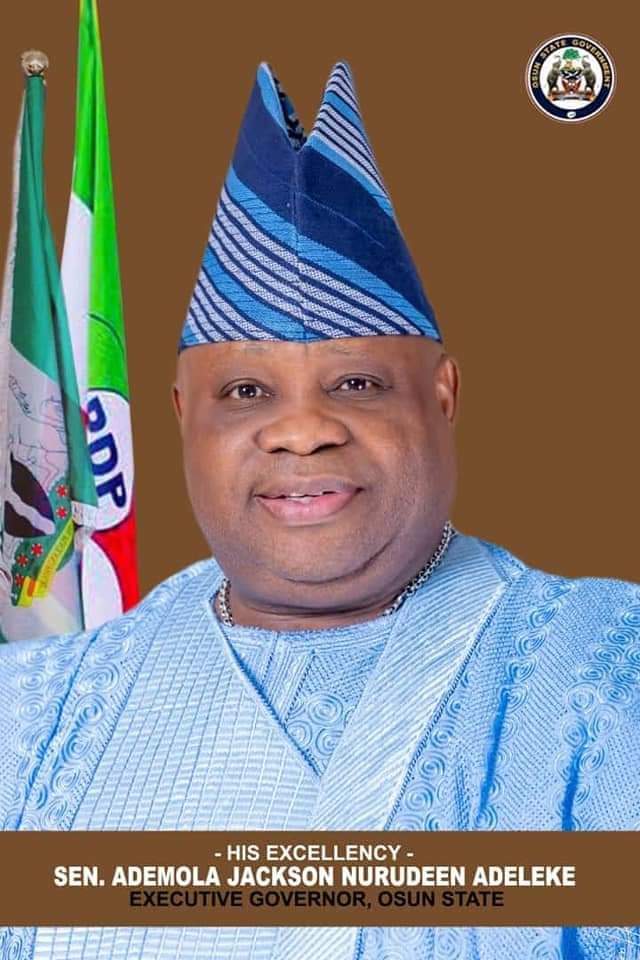Opinions
Adeleke, certificate forgery, Osun Tribunal: Matters Arising

By Ismail Omipidan
Today, I want to revisit the certificate forgery matter of Governor Ademola Adeleke so as to let Nigerians know that there are plethora cases around the issue. But before I proceed, let me digress a bit.
By my nature, I discuss, contextualise and analyse issues based on facts presented. After observing the facts, I apply logic to make explanation. Once I am done with explanation, I can make informed predictions. Pray, how does this amount to an offence to warrant a call for my arrest by Mallam Olawale Rasheed’s sponsored CSO?
Like I stated on my status on Monday when the call for my arrest was made, Mallam Rasheed, who is the Governor’s spokesperson; Reverend Jenyo, who is Governor Ademola Adeleke’s Personal Assistant; and all the party leaders who alleged on Radio, Television and even on the pages of newspapers that the January 27 judgement was “purchased” are the ones that should be invited by security operatives to substantiate their claim on how the judgement was allegedly “purchased and waybilled.”
While we await what happens to them with regard to their reckless claim, I make bold to say that most members of the PDP who are close to the Ede faction of the party judge others by their standards.
Anyone who knows members of the Adeleke family knows that they believe so much in their money and their belief is that there is nothing money cannot buy. Maybe they met a brick wall here and that is why they are complaining that the judgment was bought.
Having said that, let’s revisit Senator Ademola Adeleke’s certificate forgery. In 2018, shortly before the September Governorship election of that year, two of his party members took him to court on the basis that he does not possess the requisite qualification to stand for the election. In the referenced case, the trial Judge of the Osun State High Court, Justice David Oladimeji, held that since the law does not stipulate that one must of necessity complete secondary school, Senator Ademola Adeleke was qualified to contest.
However, the learned Judge went further to state that “The documents (Adeleke’s certificates) filed before the court contain serious damaging irregularities.” But he was left off the hook because the plaintiffs who dragged him before the court then did not plead forgery.
But at the Tribunal, the APC and Adegboyega Oyetola relied on section 182 of the Constitution to challenge his eligibility to contest the July 16 2022 Governorship election.
The section among other things states that: “(1) No person shall be qualified for election to the Office of Governor of a State if – J/ he has presented a forged certificate to the independent National Electoral Commission.”
Before the Tribunal began sitting, the noise from the PDP and some of their lawyers was that the issue was a pre-election matter. I recalled however making interventions to show that it was both a pre-election and post-election matter. In the end, the three Justices of the Tribunal agreed with APC and Oyetola that Governor Ademola Adeleke indeed forged his certificate. But like in 2018, he was also left off the hook at the Tribunal based on the belief that he had acquired additional qualifications.
I have discussed the implication of that position before. I will, therefore, devote the remainder of this piece to show how the Supreme Court views the issue of certificate forgery.
In 2016, a member of the House of Representatives from Benue State, Mr. Christian Abbah, was sacked by a Federal High Court, Abuja, over certificate forgery.
But the Appeal Court restored him. However, by March 2017, the Supreme Court affirmed the judgment of the Federal High Court,
Abuja, sacking Mr. Christian Abah as a member of the House of Representatives.
A five-man panel of the apex court led by Justice Mary Peter-Odili held that, having been found to have forged the Ordinary National Diploma certificate purportedly issued to him in 1985 by the Federal Polytechnic, Mubi, Adamawa State, Abah remained constitutionally disqualified to contest the election into the National Assembly.
The lead judgment was read by Justice Sidi Bageh.
Justice Bageh, while delivering the judgment held that “criminality such as certificate forgery must not be allowed to continue to contaminate the nation’s polity.”
He said whenever the opportunity presented itself, the Supreme Court had the responsibility of righting the wrongs, adding that the sacking of Abah was the beginning of the purification efforts.
The apex court Justice further held that: “This court, it is a must, to take the lead, righting the wrong in our society if and when the opportunity presents itself as in this appeal.
“Allowing criminality and certificate forgery to continue to percolate into the streams, waters and oceans of our national polity will only mean that our waters are and will remain dangerously contaminated.
“The purification efforts must start now and be sustained as we seek, as a nation, to now change from our old culture of reckless impunity.
“The Nigerian Constitution is supreme. It desires that no one who has ever presented a forged certificate to INEC should contest elections into the Nigerian National Assembly. This is clear and sacrosanct.
“More compelling, as a judicial determination, a judicial decision has been taken by no less a technical panel sitting in at least a panel of three judges as an election tribunal with a constitutional mandate to determine such an issue as they relate to elections and its outcome, including eligibility. This was also affirmed by the trial court.
“On this issue, our duty is to apply the Constitution and the law as it stands, in its original form undiluted by coloured interpretation.”
For the benefit of the doubt, this does not in any way mean that I am “backtracking (backtrack)” on the issue of over-voting. Far from it. I am only saying that having succeeded in the first prayer of over-voting, the certificate forgery matter is equally as potent as the issue of over-voting.
On the issue of over-voting, the argument that the Tribunal should have considered the report of the expert hired by Governor Ademola Adeleke is also untenable for three strong reasons: one, he also admitted there was over-voting. Two, they did not even open one BVAS machine in the court to demonstrate how it works. Three, finally, INEC and not Governor Ademola Adeleke conducted the election. He is, therefore, not in a position to insist that a document that never emanated from INEC should be considered as the most authentic. In any case, from the report of the Mock Test conducted by INEC on BVAS recently, the interval of time for an individual accreditation to reach the back end server is two minutes. If we go by this result, the issue of synchronisation or data from primary source does not hold water.
Omipidan, a journalist and Public Affairs analyst writes from Ile Olorisa Compound, Eyindi, Ila Orangun.
-

 Business6 days ago
Business6 days agoCurrent Naira Rate Against Dollar
-

 Education4 days ago
Education4 days agoTinubu approves creation of new Federal University
-

 Health3 days ago
Health3 days ago“News on HND, B.Sc holders in Community Health obtaining CHPRBN license to practice is misleading, fake” – SCHTSN alerts public
-

 Metro/Crime12 hours ago
Metro/Crime12 hours agoSuspect Arrested Over Murder Of Osun Pastor (Photo)
-

 Politics1 day ago
Politics1 day agoTwo LG Chairmen impeached by Councillors
-

 Osun News6 days ago
Osun News6 days agoIlesa League of Imams & Alfas meets MUPAF, lauds constituency tour initiative
-

 Osun News3 days ago
Osun News3 days agoAwara of Iwara advices Ijesha Royal Family against Disrespect Owa Throne
-

 Metro/Crime15 hours ago
Metro/Crime15 hours agoPastor Killed While Settling Couple’s Dispute In Osogbo





